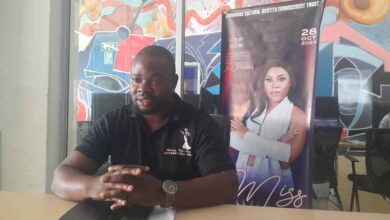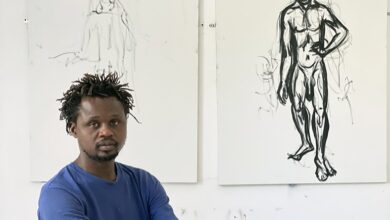Wilbert Rukato Calls for Reform in Zimbabwe’s Modelling Industry

Veteran pageant expert Wilbert Rukato has raised concerns over the declining standards in Zimbabwe’s modelling industry, attributing the issue to inexperienced instructors and a lack of proper regulation. According to Rukato, the sector has been “hijacked” by individuals who lack the necessary expertise, ultimately compromising the quality of models representing the country on international platforms.
In an interview with Zimpapers Arts and Entertainment Hub, Rukato lamented Zimbabwe’s poor performances at global pageants such as Miss World and Miss Universe. “It’s sad that Zimbabwe has not been making an impression on the global scene when it comes to international pageants,” he said.
Lack of Proper Grooming and Training
Rukato criticized the current state of model scouting and grooming, highlighting that many aspiring models are not receiving the necessary training to succeed in the industry. “The quality of models we are getting from the current crop of modelling instructors is quite shocking. Many of them don’t even know how to sit, stand, or answer questions properly,” he noted.
He further stated that some models are reaching international pageants through powerful connections and wealthy sponsors rather than merit. This, he argued, has diluted the professionalism of the industry, making it harder for genuinely talented models to thrive.
Calls for Regulation and Professionalism
To address these issues, Rukato called for the formalization and regulation of the modelling sector, suggesting the establishment of a board to oversee grooming and training standards. “For pageantry to be taken seriously and to create employment, there should be a board regulating the sector. We should belong to a specific ministry where our operations can be monitored,” he said.
He also urged modelling agencies and instructors to undergo vetting and registration with relevant authorities. “We can’t have people masquerading as modelling instructors ruining the industry on our watch. Parents and guardians should feel confident when their children choose modelling as a career,” he stressed.
Addressing Exploitation and Abuse
Rukato expressed deep concern over the increasing reports of exploitation and abuse within the industry. He revealed that several models have been taken advantage of by individuals posing as sponsors or international scouts. “I have been receiving numerous reports of models being sexually abused or being used for free. This shocking trend has been ongoing for years, but we cannot afford to remain silent,” he stated.
Launch of ‘Modelling Watchdog Industries of Zimbabwe’
Despite the current challenges, Rukato remains committed to the industry. He has launched an initiative called Modelling Watchdog Industries of Zimbabwe, aimed at improving the welfare of models and restoring professionalism in the sector. “It’s a voluntary organization where we provide free advice, counselling, and grooming to models. I developed this movement after receiving numerous complaints from both active and retired models,” he explained.
Rukato emphasized that collaboration is key to reviving Zimbabwe’s modelling industry. “My door is always open to work with new instructors and stakeholders. We can only improve the sector through unity, collaboration, and networking, which has been lacking due to big egos and arrogance,” he noted.
The Future of Zimbabwean Pageantry
While pageants like Miss Universe Zimbabwe, Miss World Zimbabwe, Miss Rural Zimbabwe, and Miss Heritage continue to attract interest, Rukato believes more needs to be done to ensure these competitions are properly managed. “Talent is abundant in Zimbabwean pageantry, but without regulation, grooming, and industry ethics, we risk losing our place on the international stage,” he warned.
With the introduction of his watchdog initiative and calls for regulatory reforms, Rukato hopes to restore professionalism and ensure that Zimbabwean models receive the training and opportunities they deserve.




